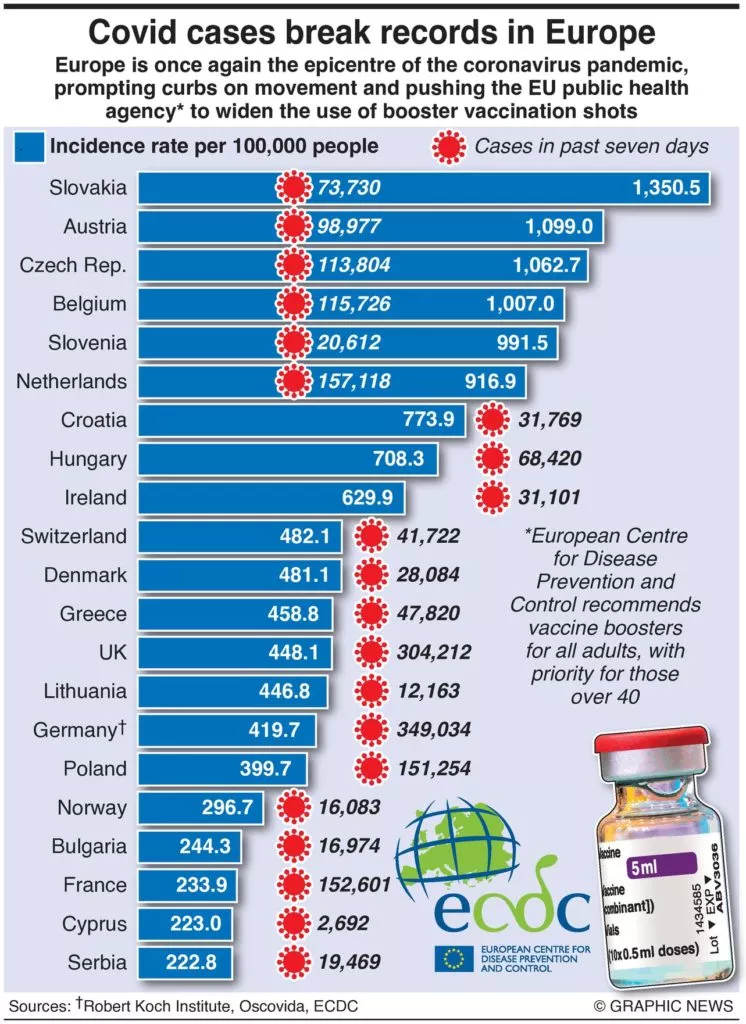Covid-19 has hit record-breaking numbers across Europe as countries look towards further measures to curb the spread of the virus in the run-up to Christmas.
According to the latest figures, Slovakia, Austria, the Czech Republic, and Belgium have all hit new highs of above 1,000 infections per 100,000.
Slovakia has recorded Europe’s highest rate of Covid-19 in the last seven days, with 1,350.5 infections per 100,000 people. The high number of cases has prompted the countries' government to impose a two-week lockdown in a bid to get the situation under control.
Austria, which has the second-highest incidence rate in Europe, has also imposed a lockdown. Furthermore, Austrian government announced mandatory vaccination for the whole population from February due to the poor uptake.
Meanwhile, Czech Republic has recorded the highest daily rise in infections with cases surpassing 25,000 for the first time. Like Austria, the Czech government is also considering mandatory vaccines for certain groups such as healthcare workers and people over the age of 60.

Although other European countries have not had to revisit a lockdown, new measures are being introduced by a number of governments.
The Netherlands, which recorded 157,000 coronavirus infections in the past week, is expected to announce new public health measures on Friday.
On Thursday, Germany became the latest country to pass the milestone of 100,000 deaths from Covid-19 since the pandemic began.
Germany is the fifth country to pass that mark in the Europe region after Russia, the UK, Italy and France.
German health officials have said that another lockdown can't be ruled out amid the rising case numbers and deaths in the country.
In France, the government opted to avoid another lockdown or curfew as daily cases rise above 30,000. Instead, the country has launched a plan to give booster jabs to all adults.
This comes as the European Centre for Disease Prevention and Control (ECDC) recommended vaccine boosters for all adults.
“Booster doses should be considered for all adult individuals prioritising persons above 40 years of age,” the head of the ECDC, Andrea Ammon, said.
- Additional reporting by PA







